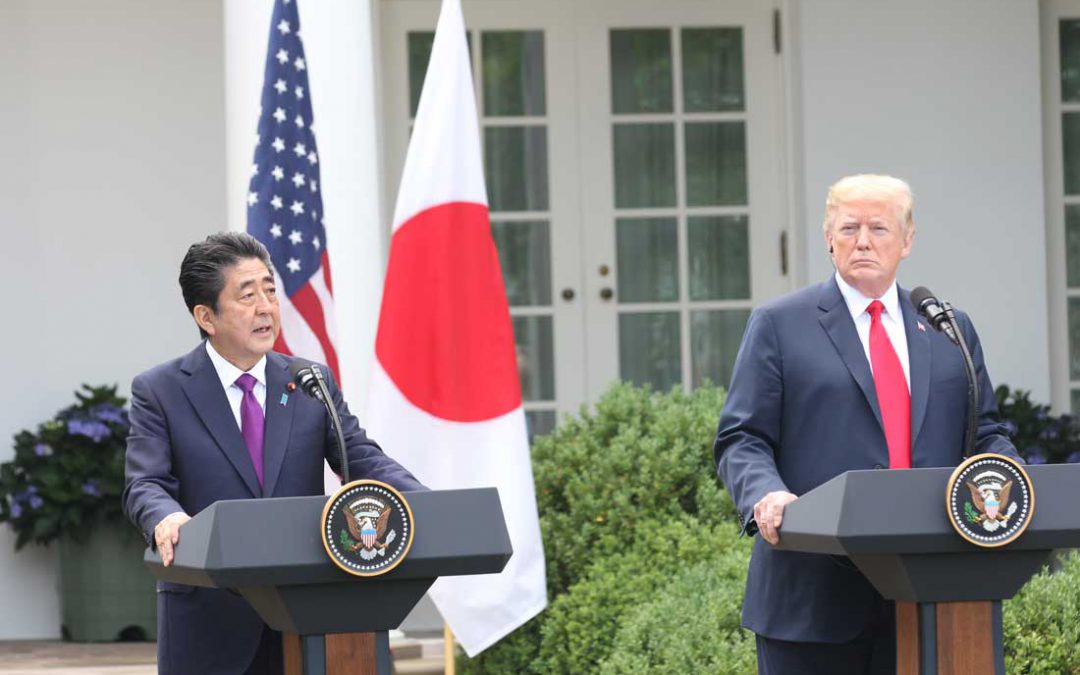WASHINGTON — The United States and North Korea are the key players in the upcoming summit scheduled for next week in Singapore, but as President Donald Trump’s meeting with Japan’s Prime Minister Shinzo Abe on Thursday proved, the outcome of the summit will affect more than just North Korea and the U.S.
Trump said he wants to keep stakeholders in the region — including China, South Korea and Japan — involved in procedures for the summit, which he predicted will not be limited to one meeting. During a press conference with Abe, the president wavered on his expectations for the summit, saying he believes “we are going to have a terrific success or modified success” and that he is “prepared to walk away.”
“You are about to make a new history,” Abe said to Trump. “Not only Japan, but the whole international community is strongly looking forward to the U.S.-North Korea summit to open doors toward peace and stability in Northeast Asia.”
Abe and Trump met at the White House for a working lunch to discuss how the United States can leverage the meeting on June 12 with North Korean leader Kim Jong-un to address some of Japan’s longstanding concerns, which include inquiring about the return of abducted Japanese officials in the 1970s and 1980s.
“He [Abe] very much talked about abduction,” Trump said. “It was pre-eminent in our conversations, and we talked about it long and hard and passionately. I will follow his wishes and we will be discussing that with North Korea.”
The Japanese prime minister also underscored his “full agreement” and “perfect alignment” on the U.S.’s continued sanctions against the North, although the Trump administration has distanced itself from using the term “maximum pressure campaign.”
“We don’t use the term anymore because we are going into a friendly negotiation,” Trump said. “If you hear me saying that we are going to use maximum pressure, then the negotiation did not go well.”
Abe was adamant on the North abandoning all nuclear weapons programs, including ballistic and medium-range missiles that could reach Japan. He also said he wants to see the total implementation of the United Nations’ Security Council resolution to maintain international peace and security.
Abe’s quick trip to the White House came right before the G-7 summit in Quebec on Friday, which the Washington Post reported Trump is not looking forward to. Trump’s decisions to pull out of the Iran nuclear deal and to impose metal tariffs against close allies have irritated leaders of America’s longstanding friends, including Japan. Abe joined a list of global leaders like Canada’s Prime Minister Justin Trudeau and Mexico’s President Enrique Peña Nieto, who have confronted Trump on his trade policies and who will likely continue advocating for a better trade negotiation next week in Quebec.

